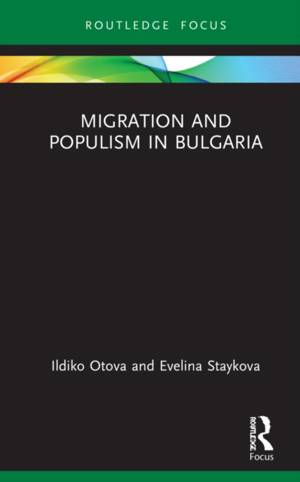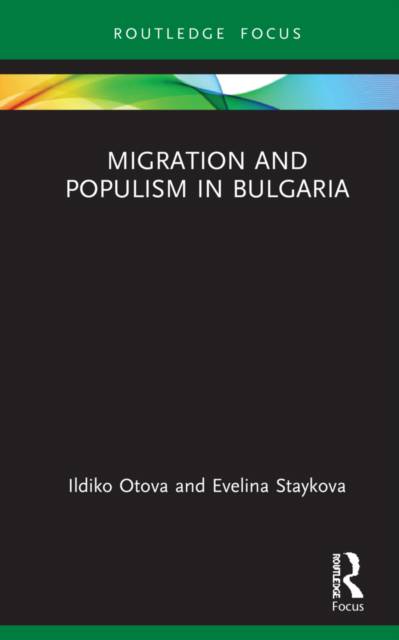
- Retrait gratuit dans votre magasin Club
- 7.000.000 titres dans notre catalogue
- Payer en toute sécurité
- Toujours un magasin près de chez vous
- Retrait gratuit dans votre magasin Club
- 7.000.000 titres dans notre catalogue
- Payer en toute sécurité
- Toujours un magasin près de chez vous
Description
Focusing on Bulgaria, this book addresses the key issues of migration and populism, which have grown to become dominant topics of debate within Europe and across the world over the last decade.
Ildiko Otova and Evelina Staykova trace the history of migration and populist discourses within Bulgaria from 1989 until the present day. The authors analyse how a lack of clear and coherent migration policies on migration over the years left Bulgaria unprepared for the 2015 European migrant crisis, thus leaving the door open for populist ideology to help shape public perceptions and narratives of migration as a menace and burden to society. Far from being confined to the extreme fringes of the political spectrum, Otova and Staykova reveal how populism has increasingly been co-opted by mainstream parties. This shift to the middle ground has led to what they claim to be a 'normalisation' in populist rhetoric, giving legitimacy to attitudes towards migration as a threat to society, which they argue, in turn, renders constructive policymaking far more difficult.
Adopting an interdisciplinary approach, this book is an important tool for postgraduate students and researchers of Political Sciences, Migration Studies, European Studies and European History, as well as practitioners working in the field of international migration and asylum.
Spécifications
Parties prenantes
- Auteur(s) :
- Editeur:
Contenu
- Nombre de pages :
- 138
- Langue:
- Anglais
- Collection :
Caractéristiques
- EAN:
- 9780367752071
- Date de parution :
- 08-10-21
- Format:
- Livre relié
- Format numérique:
- Genaaid
- Dimensions :
- 140 mm x 216 mm
- Poids :
- 317 g







